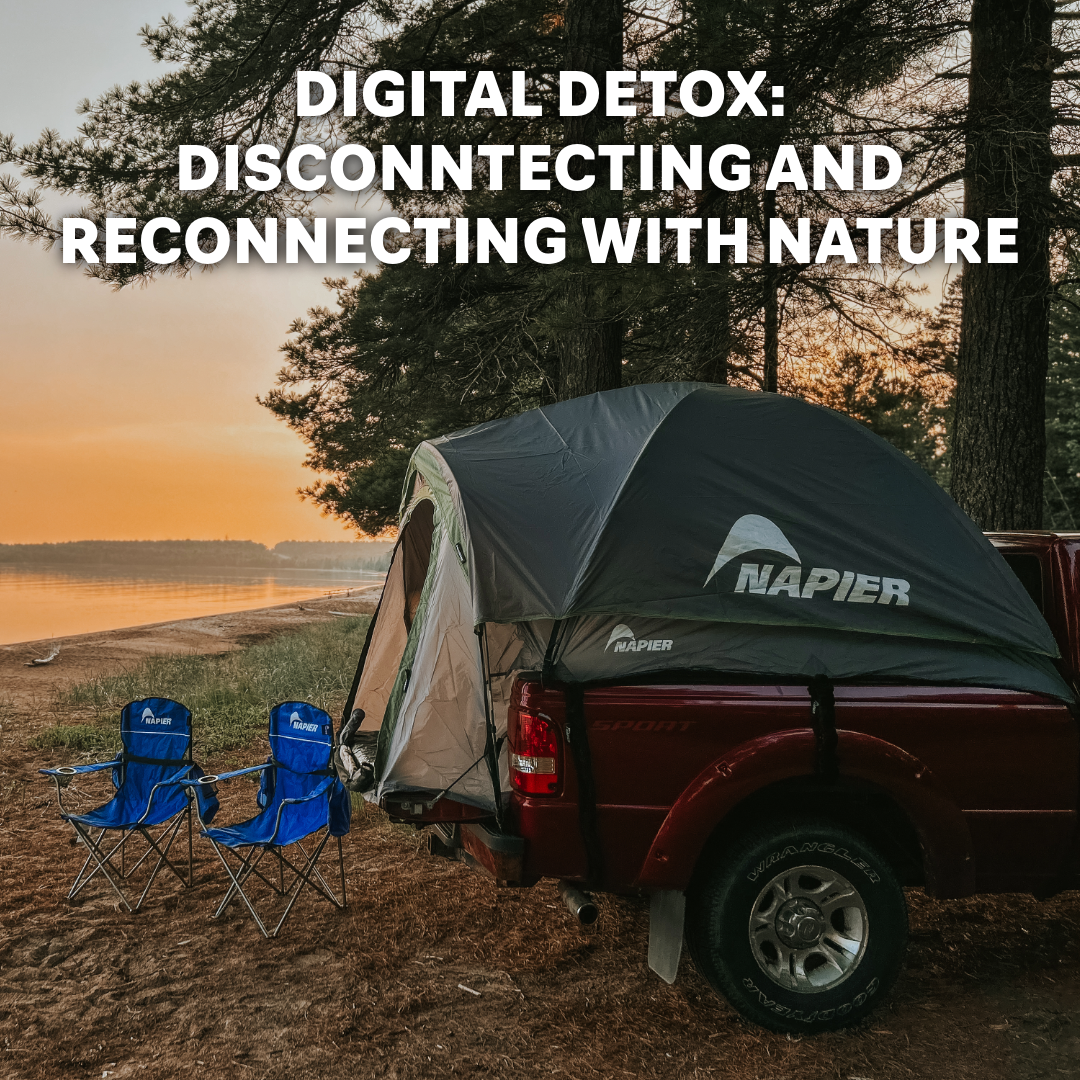Digital Detox: Disconnecting and Reconnecting with Nature

In today’s digitally driven world, screens dominate our lives from the moment we wake up until we go to sleep. While technology has its benefits, it's essential to recognize the importance of taking a break from the digital realm and getting back in touch with our roots. A digital detox, where one intentionally reduces or eliminates screen time, can help restore balance and improve overall well-being. Here's why you should consider a digital detox and how to make it a part of your life.

The Benefits of a Digital Detox
1. Mental Health Improvement
Excessive screen time can lead to mental fatigue, stress, and even anxiety. Disconnecting from digital devices allows our minds to rest and recharge. Studies have shown that taking regular breaks from screens can significantly reduce stress levels and improve mental clarity.
2. Enhanced Relationships with Family and Friends
When we put down our devices, we open opportunities for deeper, more meaningful interactions with the people around us. Spending quality time with family and friends without the distraction of screens fosters stronger bonds and enhances communication.
3. Increased Productivity and Creativity
Constant notifications and the lure of social media can severely impact our focus and productivity. A digital detox helps to minimize distractions, allowing us to engage more fully in our tasks. This renewed focus can lead to increased productivity and spur creativity, as our minds are free to wander and explore new ideas.

Signs You Need a Digital Detox
1. Symptoms of Digital Overload
Do you often feel fatigued, anxious, or irritable? These can be signs of digital overload. Other symptoms include headaches, eye strain, and a sense of being overwhelmed by constant information.
2. Effects on Your Daily Life
If you find it challenging to complete tasks without checking your phone, or if your screen time is interfering with your sleep or personal relationships, it may be time for a digital detox. Recognizing these signs is the first step toward making a positive change.

The Science Behind Digital Detox
1. Impacts on Cognitive Function and Attention
Excessive screen time has been linked to reduced cognitive function and attention span. Research shows that constantly switching between tasks on digital devices can lead to mental fatigue and decreased productivity.
2. Anxiety and Depression
Studies from the Wiley library have found a correlation between high levels of screen time, especially on social media, and increased rates of anxiety and depression. Reducing screen time can help alleviate these symptoms and improve overall mental health.
3. Disturbed Sleep
Exposure to blue light from screens can interfere with our natural sleep patterns by suppressing melatonin production. This can lead to poor sleep quality and insomnia. A digital detox, especially before bedtime, can help restore healthy sleep habits.
4. Restorative Effects of Nature
According to the journal of Environmental Science and Technology, spending time in nature has been shown to reduce stress, improve mood, and enhance cognitive function. The concept of "biophilia" suggests that humans have an innate connection to nature, and reconnecting with the natural world can have profound healing effects.

Practical Tips for a Successful Digital Detox
1. Setting Boundaries for Screen Time
Start by setting specific limits on your daily screen time. Use apps or built-in features on your devices to monitor and control your usage.
2. Scheduling Tech-Free Periods in Your Day
Designate certain times of the day as tech-free periods. For example, you might decide to have a screen-free hour in the morning and another in the evening.
3. Creating a Digital-Free Zone in Your Home
Identify areas in your home where digital devices are not allowed. This could be the dining room, bedroom, or a cozy corner where you can relax and unwind without screens.

Fun Outdoor Activities to Reconnect with Nature
1. Hiking, Swimming and Nature Walks
Immerse yourself in the beauty of nature by going for hikes, or leisurely nature walks. These activities not only provide physical exercise but also allow you to disconnect and enjoy the present moment. A good breath of fresh air can solve many issues!
2. Gardening or Bird Watching
Engage in activities that connect you with the natural world, such as gardening or bird watching. These hobbies can be incredibly relaxing and fulfilling.
3. Camping trips
Embark on a camping trip to truly disconnect from the digital world. Setting up camp, cooking over a fire, telling some campfire stories and sleeping under the stars can provide a refreshing break from technology and allow you to fully immerse yourself in nature. What better way to enjoy your trip than in your Napier tent!
4. Reading, Painting, or Picnicking Outdoors
If you want to spend time outside but don’t want to spend too much energy, take your favorite book, sketchpad, or picnic basket to a local park. Reading, painting, or enjoying a meal outdoors can be a delightful way to spend tech-free time.
A digital detox can significantly enhance your mental health, relationships, productivity, and overall well-being. By recognizing the signs of digital overload and implementing practical strategies for reducing screen time, you can reconnect with nature and rediscover the joys of the offline world. So, take a step back, breathe in the fresh air, and allow yourself the freedom to disconnect and recharge.

